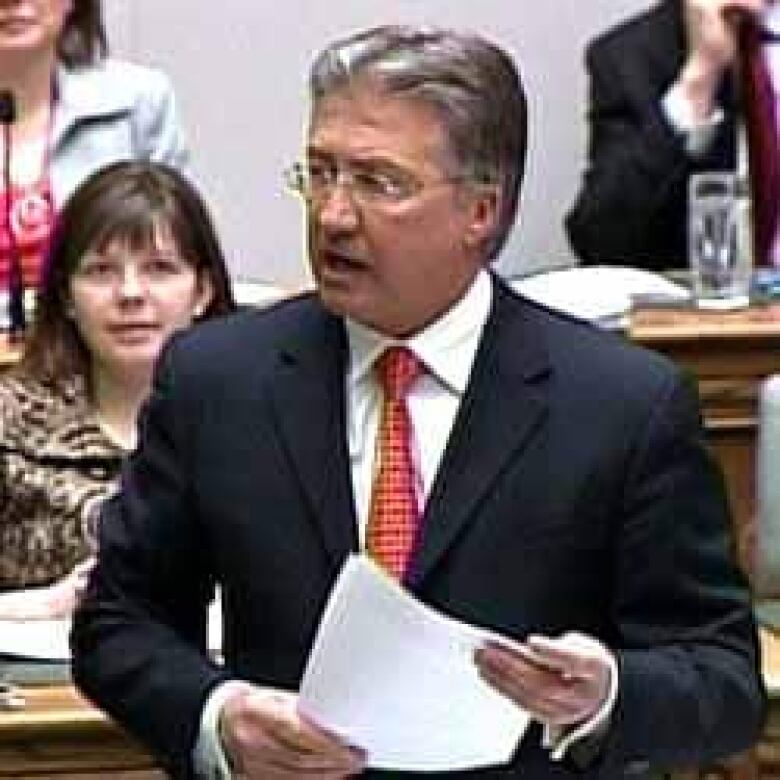N.L. makes history with power sale through Quebec

Newfoundland and Labrador Premier Danny Williams is labelling as "historic" an agreement to sell electricity directly through Quebec and into the North American power grid.
For the first time in more than four decades of often rancorous relations, Newfoundland and Labrador made the deal with Quebecover what are called wheeling rights, in which power generated in Labrador passes through Quebec.
"This is truly a historic and momentous occasion for the people of our province, as never before have we been granted access through the province of Quebec with our own power," Williams said.
Williams told reporters he understood that the power is nowbeing sold into the New York area through Emera Energy Inc.
"Newfoundland and Labrador is taking a bite out of the Big Apple," Williams said.
Under the terms of a 1969 deal, power generated at the Upper Churchill site in Labrador is sold to Hydro-Quebec, which then can resell the power at significantly higher rates.
"This is precisely the obstacle that was not overcome in the original Upper Churchill agreement, resulting in that unfair and lopsided deal," Williams said.
In 1998, Newfoundland and Labrador signed a deal for recall rights on 300 megawatts of the power generated at the Upper Churchill project.
The province is currently using about 170 megawatts for domestic use in Labrador, and has made the remaining 130 megawatts available for export.
Government officials acknowledged that the symbolic value of the deal outweighs what the province actually hopes to earn. The government said it may take in between $40 million and $80 million through sales on the spot market.
Prices in the summer months, for instance, soar when demand to power air-conditioning systems is highest. During the summer, Newfoundland and Labrador will be able to export as much as 250 megawatts of power.
The deal sets an important precedent for Newfoundland and Labrador, which has been eager for years to move into exporting energy sources beyond the oil pumped at its offshore fields.
Through Nalcor Energy, its wholly owned subsidiary, Newfoundland and Labrador has been trying to develop 2,800 megawatts of power through its proposed Lower Churchill hydroelectric megaproject.
Nalcor chief executive officer Ed Martin said the deal will provide power to between 200,000 and 300,000 houses in the New York area.
Martin said the deal sets the stage for more ambitious developments in years to come.
"We have a product that the market is demanding now and we foresee a growing demand into the future," he said.
Nalcor, though, has been examining the viability of other options of delivering Lower Churchill power to export markets, including a complex system that would draw the power from Labrador across the Strait of Belle Isle and down the west coast of Newfoundland.
Williams also informed the house of assembly about the deal, which brought a standing ovation from the governing Progressive Conservatives.
The Liberal opposition, though, was less impressed. Liberal Leader Yvonne Jones described the deal as "a tweaking of a Liberal government" initiative, referring to the 1998 recall deal negotiated when Brian Tobin was premier.












_(720p).jpg)


 OFFICIAL HD MUSIC VIDEO.jpg)
.jpg)



























































































